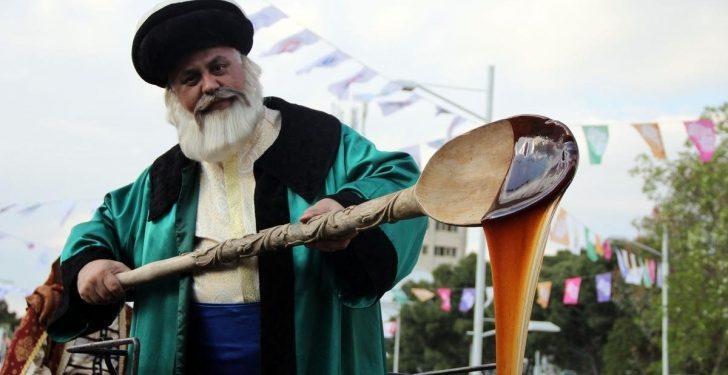Contents
Questo articolo è disponibile anche in:
Among the typical delicacies that can be tasted in Turkey, the mesir macunu (“mesir paste”) is certainly one of the most favorites. This preparation is linked to a centuries-old history; even more, to figures of historical importance such as Sultan Suleiman I and the Valide Hafsa Sultan, mother of the “Magnificent” padishah.
This paste defined “miraculous” has become a fundamental part of a famous festival that takes place every year in Manisa, one of the 81 Turkish provinces, and which traditionally announces the arrival of spring. But to tell the origin of this delicacy, which is very much consumed today, we need to take a step back in time, of almost 500 years.
The origins of the mesir macunu
The mesir paste was born during the reign of Sultan Suleiman I, a historical period during which the Ottoman Empire reached its maximum splendor and which, for this reason, earned the padishah the nickname of “Magnificent”.
But the first years of the sultan’s reign were marred by a serious event: during a visit to Manisa Hafsa Sultan, favorite of the deceased Selim I, mother of Suleiman and the first woman to enjoy the very high office of Valide (comparable to the title of “queen mother”), fell victim to a mysterious and debilitating disease, described as incurable by doctors of the time.
Desperate, Suleiman turned to the Sufi Merkez Efendi, who cared for the sick in a nearby hospital using preparations of his own production; he created a mixture of no less than 41 herbs and spices, including anise, cumin, cinnamon, pepper, licorice, ginger, turmeric, vanilla: each ingredient had a beneficial effect which, combined with others, it might have been helpful for the Valide.
Sent to the palace in Manisa and served to Hafsa Sultan, the paste proved to be miraculous: Suleiman’s mother recovered in a short time, thus driving away the dark shadow of death. The figure of the Valide Sultan is known for the innumerable works of charity to which she dedicated herself during her life: not failing in this admirable quality of hers, the woman asked her son to distribute the paste of mesir to the people, sharing it during a specially organized festivity.
The mesir festival
Thus was born the mesir festival, which for almost 500 years has been held in the city linked to this delicacy, Manisa. To allow an easy distribution, the mesir paste is thickened with honey (which is why it takes on that typical dark color and sweetish flavour) and solidified to the point that it can be wrapped.
One of the most curious tradition related to the distribution of the mesir “candies” is certainly the point from which they reach the people: since the birth of the festival, in fact, they are thrown in large numbers from the roof of the Hafsa Sultan Mosque in Manisa; in recent years, almost 7 tons of mesir paste have been thrown from the roof of the religious building complex.
This centuries-old tradition is a very important moment from an educational point of view: during this occasion, in fact, a historical review is held, with parades and costumes, food and music; everything culminates with the launch of the “candies”, which takes place on the last day of the celebration, gathering a large number of participants since it often coincides with the weekend. Furthermore, the festival is linked to the arrival of spring: with a few exceptions, it is always re-proposed around 21 March.
From tradition to street food: the macun şekeri
The famous mesir paste has become, over the centuries, the street food par excellence, linked above all to the various celebrations: it will not be unusual to find macuncu on the street (those who serve macun şekeri, a variation of the famous preparation) with wedge pans, containing different, curious and colorful transformations of the sweet pastry, sometimes flavored with lemon, or rose, with bergamot, cinnamon and so on.

Those who want to try the tempting sweet pastry will receive it on a stick; this sweet can become very colorful, thanks to the possibility of being able to add more flavors on the same support. The mesir macunu, therefore, has become one of the most loved and sought-after foods of the Turkish tradition: street food and protagonist of a festival dedicated to it, its numerous benefits make it a real panacea, able to heal from transient ailments or more simply, to produce a smile on a bad day.
Stay up to date by following us on Telegram!
















